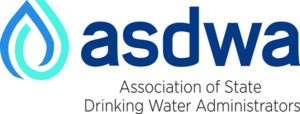ASDWA Publishes New PFAS MCLs White Paper for States that are Considering or Developing PFAS Drinking Water Standards or Guidelines
 ASDWA is pleased to announce the publication of our new PFAS Maximum Contaminant Levels (MCLs) White Paper entitled, “Lessons Learned from States and Challenges Ahead in Setting State-Level Per- and Polyfluoroalkyl Substances (PFAS) Standards.” We extend sincere thanks to the drinking water program representatives from 15 states that participated in the workgroup over the past year to develop this great resource. The primary audience for the White Paper is states that are developing or considering developing PFAS drinking water MCL regulatory standards or guidelines, or want to take other actions to assess and address PFAS. It includes an overview of current state PFAS efforts and seven topic sections on the key components of the regulatory setting process:
ASDWA is pleased to announce the publication of our new PFAS Maximum Contaminant Levels (MCLs) White Paper entitled, “Lessons Learned from States and Challenges Ahead in Setting State-Level Per- and Polyfluoroalkyl Substances (PFAS) Standards.” We extend sincere thanks to the drinking water program representatives from 15 states that participated in the workgroup over the past year to develop this great resource. The primary audience for the White Paper is states that are developing or considering developing PFAS drinking water MCL regulatory standards or guidelines, or want to take other actions to assess and address PFAS. It includes an overview of current state PFAS efforts and seven topic sections on the key components of the regulatory setting process:
- Assessing Health Effects
- Monitoring and Occurrence
- Analytical Methods and Lab Capacity
- Treatment and Compliance Options
- Benefits, Costs, and Economic Considerations
- Standard Development – Overarching Rulemaking Process
- Risk Communications
The primary purpose of the paper is to assist state drinking water administrators in how they address PFAS by: providing decision-making considerations for each topic; identifying and sharing state challenges during the regulatory development process; showing how states have addressed or overcome challenges; and providing helpful tips and resources from states that have already gone through the process to those that have not. This paper may be useful for other audiences, but a strong understanding of the regulatory development process, state drinking water programs, and PFAS may be necessary. For more information, download and read the ASDWA PFAS MCLs White Paper.
ASDWA Webinar on Monday, November 29 from 2:00 – 3:00 pm (eastern time): Please join ASDWA for this webinar where we will highlight and discuss some of the key challenges and considerations for each of the topic areas in the PFAS MCLs White Paper. REGISTER FOR THE WEBINAR HERE.

